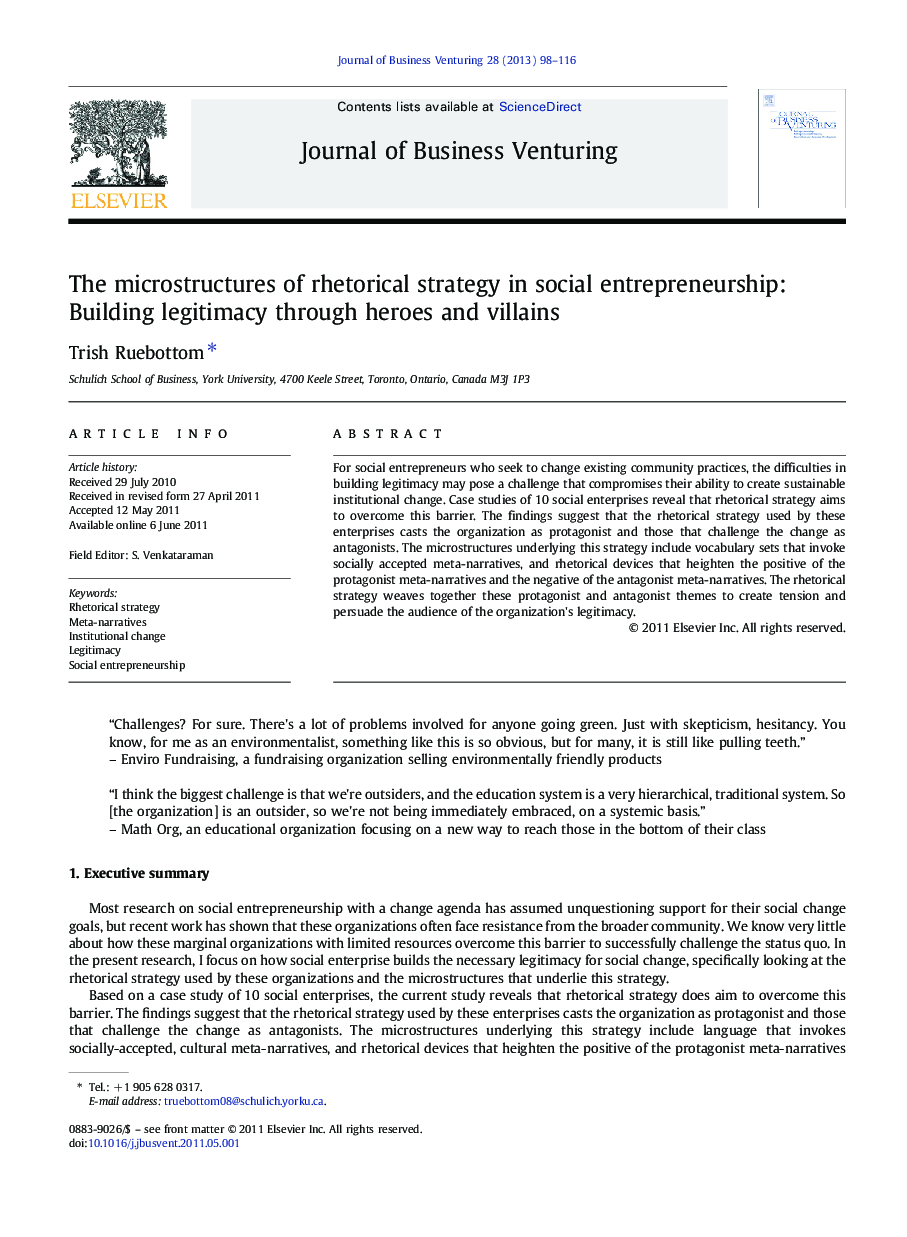| Article ID | Journal | Published Year | Pages | File Type |
|---|---|---|---|---|
| 1019452 | Journal of Business Venturing | 2013 | 19 Pages |
For social entrepreneurs who seek to change existing community practices, the difficulties in building legitimacy may pose a challenge that compromises their ability to create sustainable institutional change. Case studies of 10 social enterprises reveal that rhetorical strategy aims to overcome this barrier. The findings suggest that the rhetorical strategy used by these enterprises casts the organization as protagonist and those that challenge the change as antagonists. The microstructures underlying this strategy include vocabulary sets that invoke socially accepted meta-narratives, and rhetorical devices that heighten the positive of the protagonist meta-narratives and the negative of the antagonist meta-narratives. The rhetorical strategy weaves together these protagonist and antagonist themes to create tension and persuade the audience of the organization's legitimacy.
► I examine the rhetorical strategy of 10 organizations involved in social change. ► Organizations are cast as protagonist and “others” as antagonists. ► Vocabulary sets invoke socially accepted meta-narratives. ► Rhetorical devices emphasize the positive and negative in contrast. ► Juxtaposing protagonist and antagonist aims to create tension and build legitimacy.
